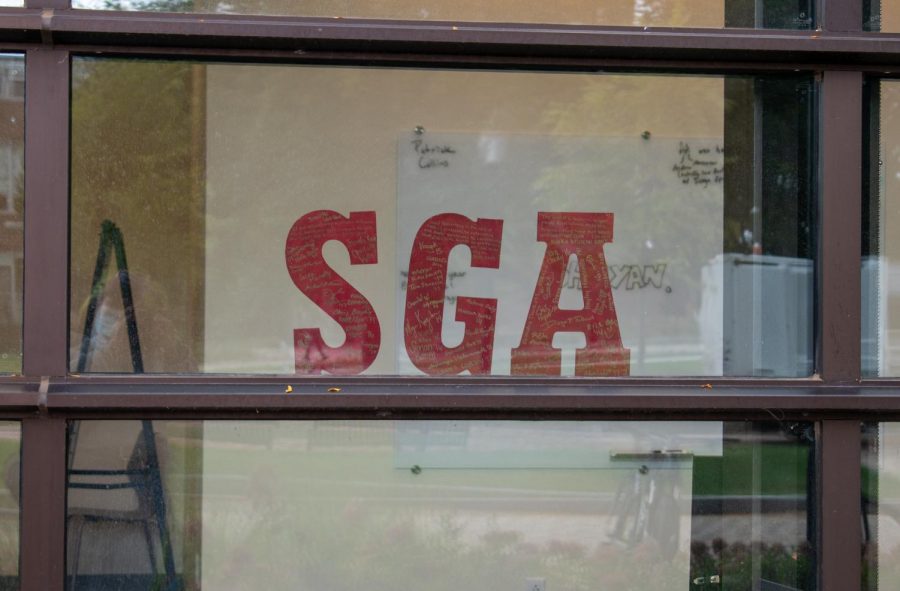The possibility of implementing Resident Assistants in fraternities, the Survivor’s Bill of Rights as University of Massachusetts policy and class caucuses were discussed at Wednesday nights’s Student Government Association meeting.
Residence Hall Association Vice President Will Tompkins stated that the RHA is looking to expand authority into fraternities following anonymous sexual assault allegations that surfaced against Theta Chi fraternity in September. If the RHA were given authority over fraternities, it could implement RAs in fraternity houses to uphold university conduct guidelines.
“If you have university students living [in fraternities], and the Student Code of Conduct applies off-campus, then we should be able to enforce it,” Tompkins said. Students have recently raised concerns about the lack of accountability within fraternities, and the RHA is exploring possibilities to address student concern.
“The main issue at stake is accountability. What we as a campus community need to do is to create a safe community for everyone,” the recently appointed SGA senator continued.
Most fraternities at UMass, however, are on private property off-campus. Therefore, UMass has less authority over fraternities than it does over on-campus housing. “The big concern right now is working it out with student legal services,” Tompkins said.
Tompkins stated that RHA intervention in fraternities is only a possibility, and that extensive research and planning needs to be done before an official plan can be finalized. He aims to “work with some of the frats on the proposal” and create a plan that will increase accountability within fraternities.
Tompkins urges any interested parties to attend the RHA meeting on Oct. 19 at 6 p.m. to provide their input. The location of the meeting is to be determined.
A short update was also given regarding the implementation of the Survivor’s Bill of Rights into University policy by Chair Hewan Weldai.
“We’re making good progress,” Weldai said. She attended an SBOR meeting with administrators and is hopeful that “something concrete” will be established by Dec. 2.
For the first time this year, the SGA broke into the Committee of the Whole, in which anyone can speak freely without procedural guidelines. Attempting to mirror the federal legislature, Speaker Patrick Collins and Assistant Speaker Julia Curto announced their intention to form class caucuses.
If supported, four class caucuses would be formed, one for each graduating class of students. Each caucus would serve as a platform for SGA members to collaborate and discuss issues amongst each other. The idea to delegate two leaders of each caucus to represent the class within the SGA was raised, as well as the idea to create sub-caucuses to represent women, minorities and other groups within the classes.
Collins expressed his desire to increase “community-based representation” within the SGA and to have members increase collaboration amongst their class to best serve the needs of the student body.
Additionally, two new senators were officially sworn in to the SGA and art and design student Ian Harvey was appointed as the chair of the finance subcommittee.
“My main objective is to provide financial support to the lovely student organizations on campus,” Harvey said. He believes that not enough student groups know about the funds available to them and plans to improve financial communication between the SGA and student organizations in his new position.
Lucas Ruud can be reached at [email protected].




















